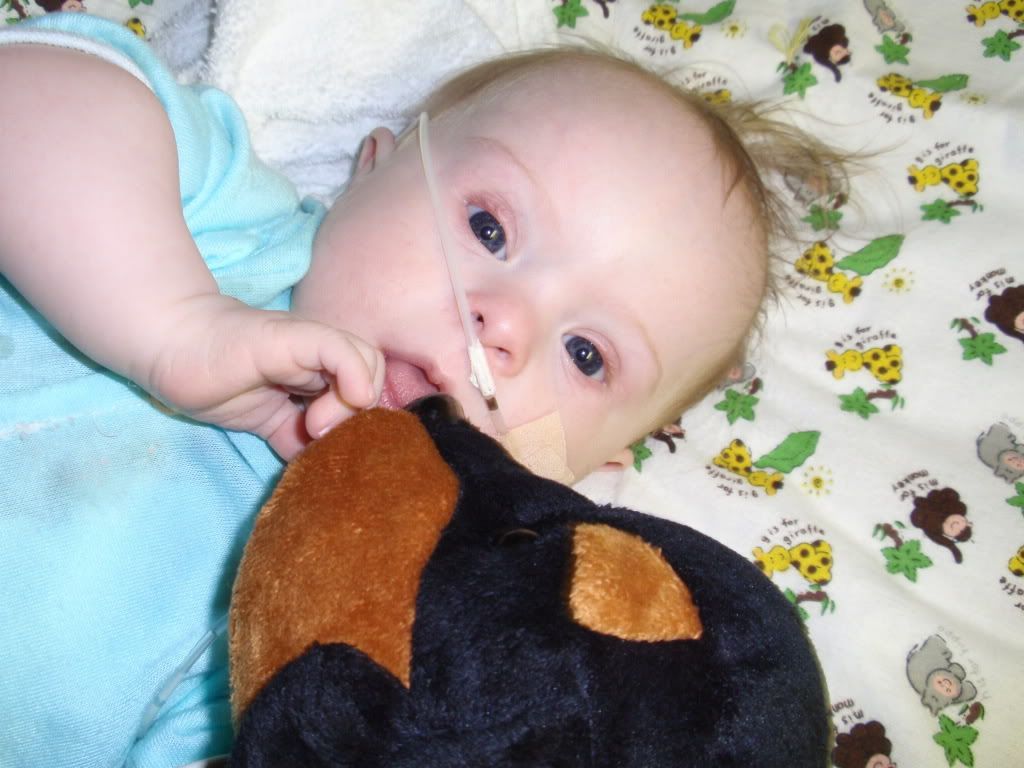With medical advances there are many medical unknowns. The University of Michigan is currently conducting a study to find out if early therapy for children with feeding tubes will help them avoid the feeding issues that are popping up all over the country. I do not know the exact number but most children who have feeding tubes during the first year and a half of life end up with a variety of feeding issues. It is known that in the first year and a half of life we learn all of the skills needed in order to eat correctly. Feeding tubes are placed out of medical necessity to get a child the nutrient they need in order to survive. Often there are other medical issues that take priority over teaching how to swallow correctly, do the basic chewing motion or strengthen the muscles needed to eat.
Out of the six families currently enrolled in the Intensive feeding program with Gabriel, only one child did not have a feeding tube for their first year and a half of life. The basics are the same for each child. They had feeding tubes because they had larger issues going on and needed basic nutrients in order to survive. We all know that early intervention is extremely important, however I do not believe Gabriel would be without feeding issues. I do believe he may have had fewer issues if he had some basic therapy from day one. I do not blame doctors for using the feeding tube to get Gabriel his basic nutrients. Gabriel needed to gain weight to have his open heart surgery and was not able to do that on his own. I would have like to have had some tools in my toolbox to assist Gabriel in strengthening his muscles so that he would be able to eat sooner.
Intensive Feeding Therapy will not fix all of Gabriel’s issues. Gabriel has had three years to gain distaste and distrust in food. He has missed the critical period of time where those skills are to be learned. It is going to take a very long time to learn what was to be learned in that short period of time. All of the older kids in the intensive feeding therapy program have been through two or three other 8 week intensive feeding programs. It is a slow process that will require time. We will gain as much as we can from this program. From the sound of it Gabriel will be able to eat pureed foods for his regular meals, drink out of a open cup, use instant breakfast once a day for nutrition (instead of pedisure all of the time), and allow us to brush his teeth. We will have to go through texture upgrades at a later date (maybe though another intensive feeding therapy program). These improvements may seem small to many of those reading this but they are HUGE for Gabriel.
I hope the University of Michigan finds that feeding therapy needs to be administered to these lovely children who have to have feeding tubes to survive. I would love to see a feeding therapist coming around just like you see the physical therapist and occupational therapist all of the time when your child is in the NICU. Early intervention is SO important! I would love to see feeding therapists able to come to houses and help little ones who are too sick to be out in public. Our Early On program does not even employ a feeding therapist. Families have to seek outside sources for this. This means, more appointments outside the house for children who are medically fragile.

























I have to thank them too: "Thanks U of M"
ReplyDelete(aargh...why couldn't it have been Michigan State?) grampsH